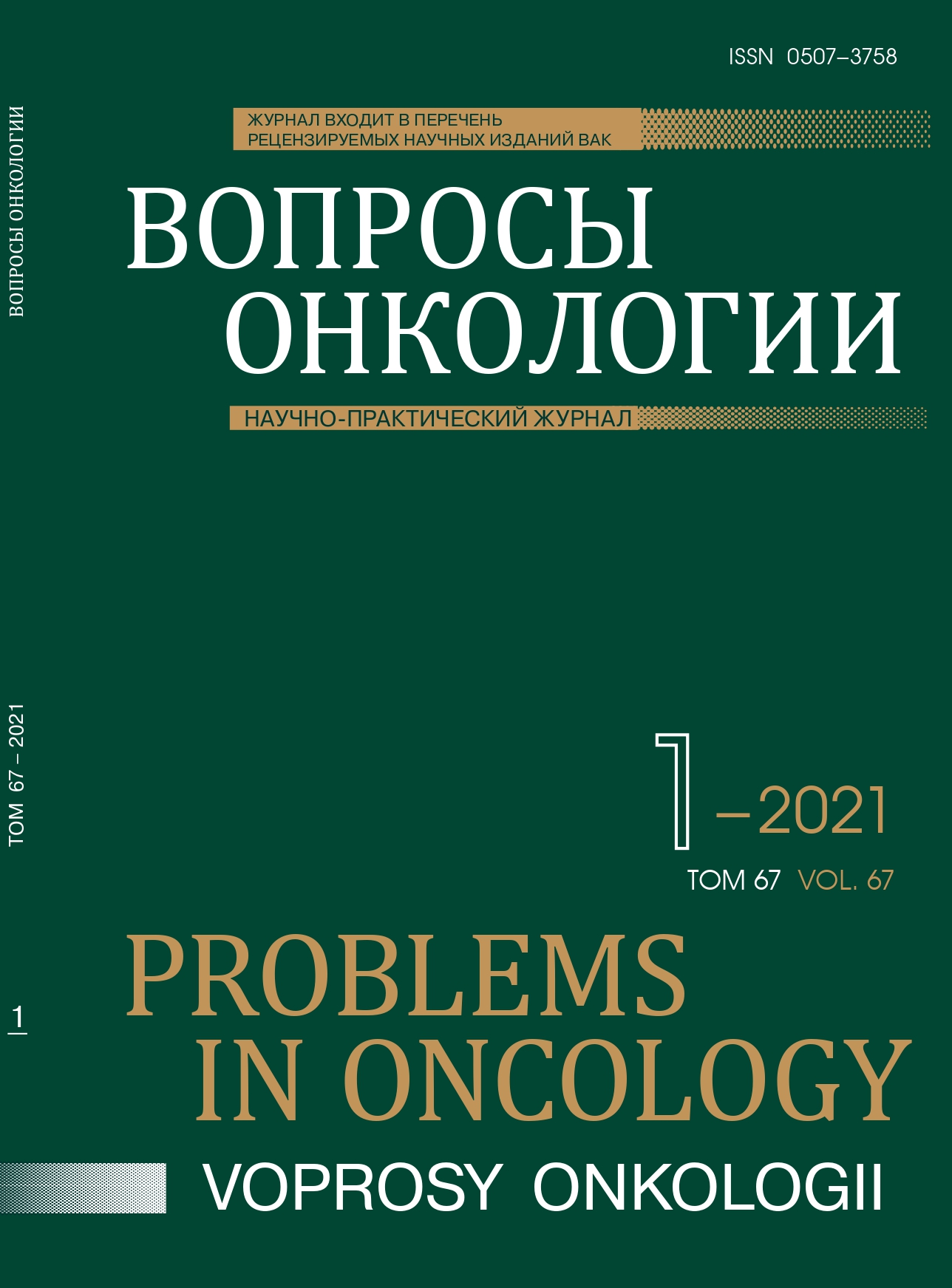Abstract
Peritoneal carcinomatosis is a variant of implantation metastasis of tumors sprouting the serous membrane of an organ. At the moment, the most effective treatment for this disease is regional chemotherapy. Systemic chemotherapy is not effective enough. The standard for the treatment of peritoneal carcinomatosis was cytoreductive interventions followed by open or closed hypertermic intraperitoneal chemoperfusion (HIPEC) or pressurized intraperitoneal aerosol chemotherapy (PIPAC).
Purpose of the study: in an animal experiment to compare the efficacy and safety of regional chemotherapy methods HIPEC and PIPAC
Materials and methods: the study was conducted on 44 rats of Wistar females. To simulate carcinomatosis, a strain of ascites ovarian tumor (OA) from the Russian Oncology Cancer Research Center N.N. Petrova. was used. The safety of the technique was evaluated clinically and based on laboratory blood tests. Efficiency - based on mass spectrometry, pathomorphological data and in assessing the life expectancy of animals.
Results: the conducted methods HIPEC (open, closed) and PIPAC have shown their safety in experiments on laboratory animals. The closed HIPEC technique is most effective. The analysis of the incidence of postoperative complications demonstrated a greater aggressiveness of open and closed techniques compared to the more “sparing” PIPAC method.
Conclusions: the experiment showed comparable safety of all animals tested. Due to the peculiarities of the technique, the PIPAC method can be used as an option for multi-stage treatment in cases where CPC and HIPEC are not possible due to a high index of peritoneal carcinomatosis, and as a neoadjuvant treatment to prevent peritoneal carcinomatosis. In any case, the prospects for using this method require further research.
References
Sadeghi B., Arvieux C., Glehen O. et al. Peritoneal carcinomatosis from non-gynecologic malignancies results of the EVOCAPE 1 multicentric prospective study. Cancer. 2000;88:358-363. doi: 10.1002/(sici)1097-0142(20000115)88:2.
Seshadri R.A., Glehen O. Cytoreductive surgery and hyperthermic intraperitoneal chemotherapy in gastric cancer. World J Gastroenterol. 2016;22:1114-1130. doi: 10.3748/wjg.v22.i3.1114.
Yang X.J., Huang C.Q., Suo T. et al. Cytoreductive surgery and hyperthermic intraperitoneal chemotherapy improves survival of patients with peritoneal metastasis from gastric cancer: final results of a phase III randomized clinical trial. Ann Surg Oncol. 2011;18:1575-1581. doi: 10.1007/s13277-012-0571-4.
Yonemura Y., Elnemr A., Endou Y. et al. Multidisciplinary therapy for treatment of patients with peritoneal carcinomatosis from gastric cancer. World J Gastrointest Oncol. 2010; 2 :85–97. doi: 10.4251/wjgo.v2.i2.85.
Koga S., Hamazoe R., Maeta M. et al. Prophylactic cancer therapy for peritoneal recurrence of gastric by continuous hyperthermic peritoneal perfusion with mitomycin C. Cancer. 1988;61:232–237. doi: 10.1002/1097-0142(19880115)61:2.
Hamazoe R., Maeta M., Kaibara N. Intraperitoneal thermochemotherapy for prevention of peritoneal recurrence of gastric cancer – final results of a randomised controlled study. Cancer. 1994; 73:2048–2052. doi: 10.1002/1097-0142(19940415).
Fujimura T., Yonemura Y., Muraoka K. et al. Continuous hyperthermic peritoneal perfusion for the prevention of peritoneal recurrence of gastric cancer: randomized controlled study. World J Surg. 1994;18:150–155. doi: 10.1007/BF00348209.
Ikeguchi M., Kondou A., Oka A. et al. Effects of continuous hyperthermic peritoneal perfusion on prognosis of gastric cancer with serosal invasion. Eur J Surg. 1995;161: 581–586. doi: 10.4236/jct.2013.41A014.
Fujimoto S., Takahashi M., Mutou T. et al. Successful intraperitoneal hyperthermic chemoperfusion for the prevention of postoperative peritoneal recurrence in patients with advanced gastric carcinoma. Cancer. 1999; 85:529–534. doi: 10.4236/jct.2013.49A1002.
Hirose K., Katayama K., Iida A. et al. Efficacy of continuous hyperthermic peritoneal perfusion for the prophylaxis and treatment of peritoneal metastasis of advanced gastric cancer: evaluation by multivariate regression analysis. Oncology. 1999;57:106–114. doi: 10.1159/000012016.
Yonemura Y., De Aretxabala X., Fujimura T. et al. Intraoperative chemohyperthermic peritoneal perfusion as an adjuvant to gastric cancer: final results of a randomised controlled study. Hepatogastroenterology. 2001;48:1776–1782. doi: 10.4236/jct.2013.49A1002.
Kim J.Y., Bae H.S. A controlled clinical study of serosainvasive gastric carcinoma patients who underwent surgery plus intraperitoneal hyperthermo-chemoperfusion (IHCP). Gastric Cancer. 2001;4:27–33. doi: 10.1007/s101200100013.
Kireeva G.S., Belyaeva O.A., Senchik K.Yu. et al. Ascitic ovarian cancer is an adequate preclinical model of carcinomatosis to study intraperitoneal chemoperfusion treatment. Siberian journal of oncology. 2019;18(1):71-78. doi: 10.21294/1814-4861-2019-18-1-71-78.

This work is licensed under a Creative Commons Attribution-NonCommercial-NoDerivatives 4.0 International License.
© АННМО «Вопросы онкологии», Copyright (c) 2021
